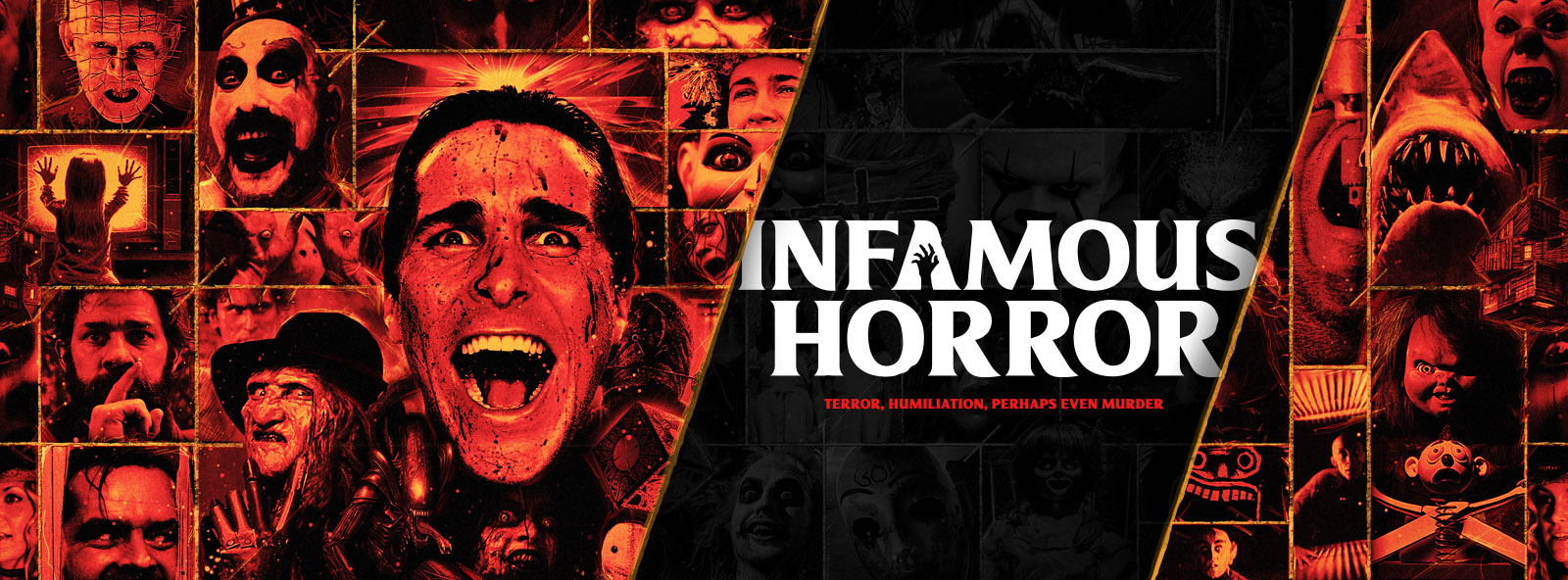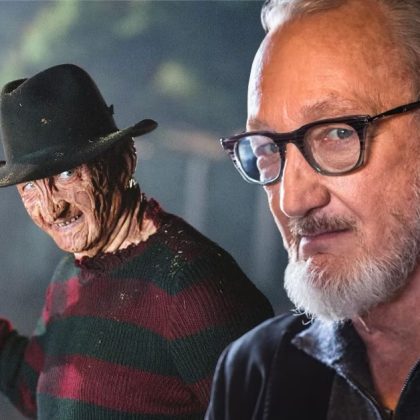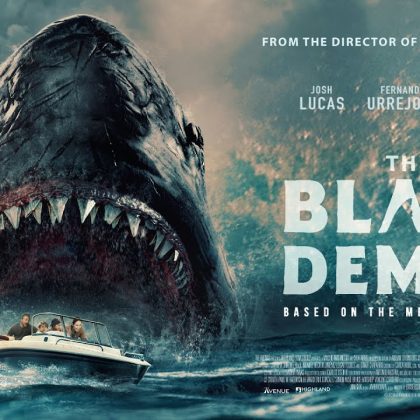
I recently had the chance to not only review the incredible indie thriller, Neon Lights, but was also afforded the opportunity to interview the film’s director Rouzbeh Heydari on his process in making this film. Here is that conversation, briefly edited for clarity.
Mikayla Daniels: I just finished watching it for the first time this morning. And I was really stressed out throughout the whole thing. It was fantastic. I am a really big fan of thriller and horror genres, and I’m also a screenwriter. I noticed that you have story by credit. Do you want to talk a little bit about your development process? How did this film come about? Where did this story come from?
Rouzbeh Heydari: Well, the story was born, obviously, out of our brains, the, you know, the parts that you don’t access too much too often. But I met Dana, you know, in the beginning of this crazy pandemic, and we got along so well that we decided we wanted to make a film right now. Right, then, no matter what the conditions of the world we’re in, we just have to start creating together. And obviously, there was a lot of limitations at that time. And there still are, you know, there’s still our it’s, it’s still, you know, being on set, it’s, you got to navigate this crazy world, just to get a shot. But we decided to write this story based on the limitations but not being bound by the limitations in terms of what we can say, and the meaning and metaphors and entertainment value we can bring in mental health, being an issue that I’ve always worked on and worked with, and is very near and dear to me. And so is with Dana, we decided to make that the core of the film.
MD: It felt authentic, and it didn’t feel gratuitous, you know what I’m saying it, it didn’t feel like, I feel sometimes filmmakers who delve into mental health, they just tried to exploit it without making sort of an understanding. And I felt that this film really was about understanding the person and you know, what he’s going through. And I love the idea of like, literally killing off, you know, your guilt and sort of all these, these things that he was struggling with? How important was it to you to really kind of give, I guess, more of a positive view of mental health in the fact that you weren’t trying to be exploitative of the condition?
RH: No, that was very important. And I did my due diligence and research and consultation with various practitioners that I know personally, or I reached out to showing them the script in its early stages, doing, you know, research on behaviors, you know, and, and so I, I think I did as much as I could, with my due diligence to not be exploitive, and have an accurate representation of the way someone feels as they’re going through this. You know, I didn’t just like pull things out of thin air, I went to people that were experts and got their insights and advice on how to go forth with developing some of the scenes and these characters.
MD: Yeah, it actually comes through really well that you did all this research, like, I can see it and I could feel it,so I do appreciate that. And you mentioned COVID. And I also worked on a film during COVID and sort of the creativity, was there any particular thing that you had to just get really creative on because of COVID restrictions?
RH: I mean, the fact that we didn’t really, we couldn’t really do any unit moves, you know, it was like to do unit moves at that time, was next to impossible. It’s a whole nother Round of, of checks and tests and this and that, and, and also, the sounds really weird. We couldn’t haze anything. So the lighting had to be very creative, because we weren’t allowed to use any haze. Because at that time, still nobody knew what COVID was. Right? So insurance, you know, and whatnot. We weren’t allowed to haze and normally it film to create the shafts of light and the beautiful images. People don’t know it, but there’s tons of haze. So I mean, one thing and again, limiting the cast, you know, picking a cast that could, that could that could carry this film on their show. Without any extra players. Those were all the challenges that we faced and that we, I think, handled extremely well, like our cinematography, despite that it was beautiful. Not having like all these extras walking around and we didn’t need that we crafted it to not have that. And, you know, all of our crew, and our casts were so careful. Everyone was so vigilant and careful. Like it was essentially we filmed this thing in a bubble. I mean, we didn’t all stay together, but some of us did. And we didn’t leave each other sights while you know, because nobody wanted the film to have any bumps or hiccups. So we were so careful at the time.
MD: If I wouldn’t have known it was shot in COVID, that’s not what would have come to my mind.You got these incredible performances out of the actors, every single one of them stressed me out. How do you as a director go about getting the performances that you want? Because it looks seamless? So clearly, your directorial vision is coming through in the final picture. How? I mean, how do you talk to actors? How do you get that performance?
RH: Well, you know, what, you know, the old saying is that, most of your job as a director is done in casting. So you pick the right cast to begin with, you go through all the auditions tirelessly, and just scan them over and over with a fine tooth comb and pick the right cast and then prep, prep, prep prep. I mean, we, the actors, and I really spent so much time leading up to shooting like so much time in one on ones together. And I really tried to give them ownership over the character, make them feel like they are that character and you know, workshopping lines, workshopping character traits. There’s even a monologue in the film that wasn’t written in. But one of my actors was like, I feel like, I would have a moment like this. And it was brilliant. So I let them have it. And we filmed it, and it made it into the film. And I just think the amount of preparation that we did, and the amount of trust we have in each other is what made those performances that powerful. And to be honest, we didn’t go more than two, three takes, you know, yeah, it was, it was all in preparation, that was where this film was made.
MD: That’s actually fantastic to hear. Because I’ve worked with directors who are sort of on the other side of that, and it’s like, 45 takes in and you’re like, you know, I’ve been sitting there going, like, why did this just not go in prep? Is that how you approach all your projects, you really focus on sort of that prep, so that way, when you get on set, it’s just that much faster?
RH: I mean, the filming should be the easy part. I believe the film is made in pre production and in preparation, the film is made on paper and rehearsals. And, you know, everyone looks at the filming process as this big glamorous part of the film. But that should be the easy part. You should have all your ducks in a row, so that you know and be over prepared so that when things come at you that you aren’t anticipating, you can react quickly and move on with your day, especially with indie films, where you don’t have the time or budget to exhaust on mistakes. So all of my projects are like that. And honestly, my first two films were shot on 35 milimeter. For short films, and feature films that are shot in Iran were all shot on 35. So that also gives the, you know, learning how to shoot film on film gives you the tools to not cover a scene and 100 angles and figure it out in posts. You just know where your camera needs to be.
MD:Fantastic. So one more question before we go. But first, I want to say that honestly, when I watched this film, I felt this is what independent cinema should look like, and feel like and just really fantastic. What would be one thing that you would tell you know, film students or you know somebody who wants to make a film? Is there one piece of advice you would give someone who is where you were before you started doing, you know, all these films? What piece of advice?
RH:Yeah, never give up. Believe in yourself. Believe in your story. And if the story works for you, it’s going to work for other people. And honestly, just never give up because there’s so many hurdles that come at you. And it takes time to develop your craft and build that network. So even if things aren’t looking good. Write all the time. Just don’t give up on and have that goal always in sight of your films.
MD:That’s great advice. Well, thank you so much for your time and I appreciate it. And I’m going to be watching the film again before I actually review it because it was that good. So thank you.
Neon Lights is now available to stream.




